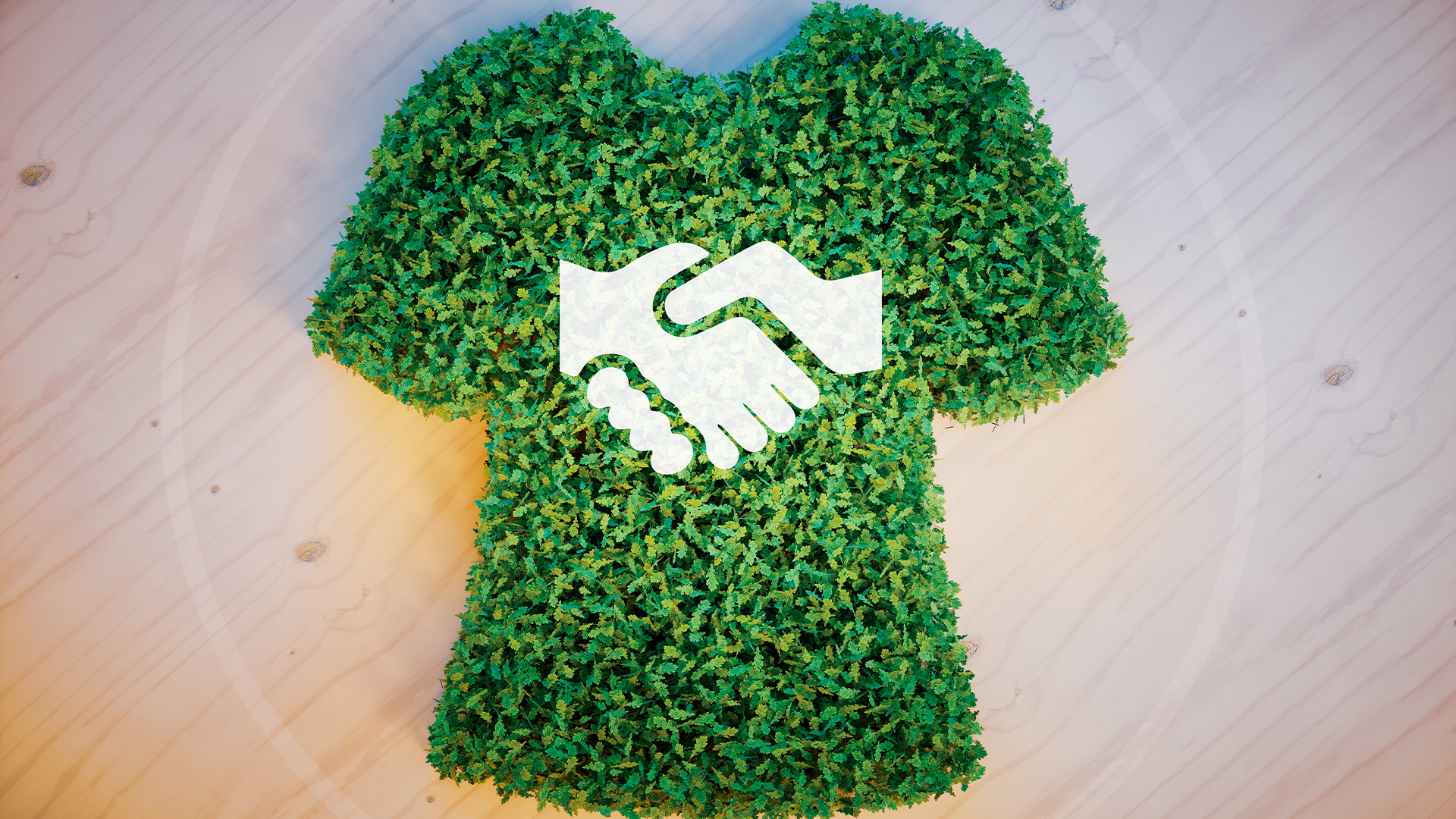From handbags made from apple waste to footwear created from pineapple leaves, these sustainable alternatives are joined by innovative sustainable fashion brands collaborating to transform the fashion industry.
Innovative Brands
Conscious Sneakers
Nat-2™ is a German company that creates high-end sustainable footwear from natural materials and is environmentally friendly.
Based in Munich, it was founded by designer Sebastian Thies. He is part of the sixth generation of designers from one of Europe’s oldest shoe factories, established in 1856.
Driven by innovation, this firm creates original footwear using eco-friendly techniques and recycled materials from natural resources such as certified sustainable wood, natural rubber, vegetable-tanned leather, coffee grounds, PET bottles, organic cotton, and pineapple fibers, among others.
In addition, it is a 100% vegan product, as it does not use animal ingredients or water-based glue. They are handmade in a small Italian family factory.
Their packaging includes shoeboxes, brochures, and descriptions printed on recycled paper, and their hang tags are made of certified wood from sustainable forestry.
Its collections are timeless as well as primarily unisex.
This innovative firm is committed to contributing to the UN’s sustainable development goals.
It is worth noting that the company has received international awards for its commitment and has been included in the collections of renowned international museums.
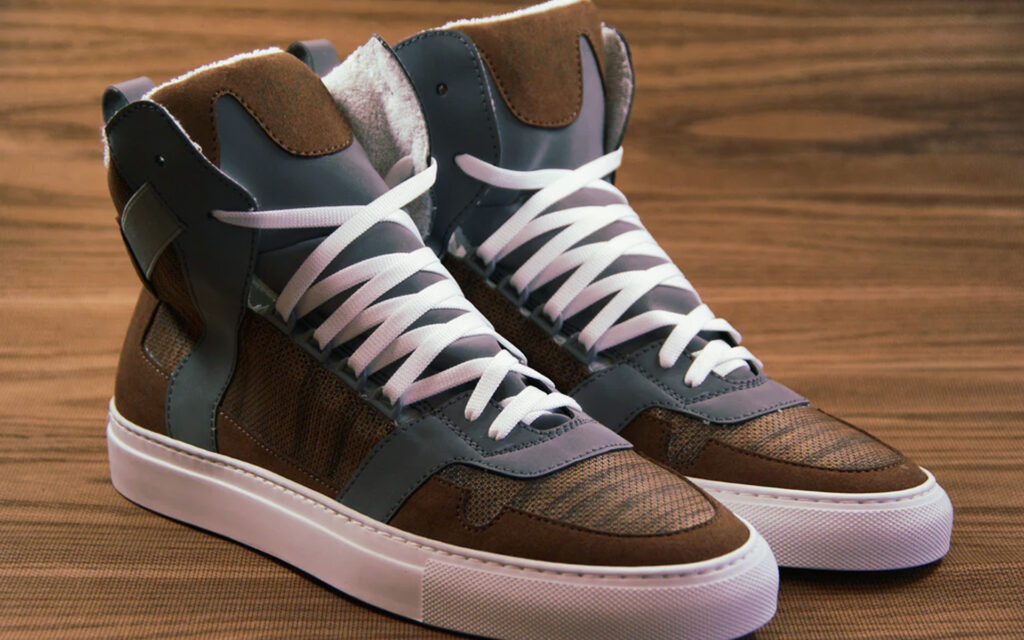
Our bags are garbage
aNYbag was created in 2020 in New York. Its goal was to prevent plastic bags from reaching landfills and waterways.
From his Manhattan factory, inherited from his leather goods manufacturer father, Alex Dabagh and his team transform the US city’s waste into a unique and durable fabric.
At first, the firm sourced bags donated by friends and family. Then, after the plastic bag ban, it struck a deal with various local businesses to get the bags they had in stock, as well as partnering with local schools to collect the bags they left in dumpsters.
The aNYbag is created by weaving five to seven meters of reused and recycled plastic bags a day on a loom dedicated exclusively to weaving plastic. Once they receive the bags, they disassemble, clean, and disinfect them.
In one year, they have collected an estimated 12,000 pounds of plastic, the equivalent of about 588,000 single-use plastic bags.
Each aNYbag is rugged, with a crinkled texture that can hold up to 100 pounds.
It is available in three models: Classic, Mini, and Weekender, ranging in price from $98 to $248.
The firm has collaborated with Adidas, Ralph Lauren, Beyond Meat, and model Miranda Kerr’s cosmetics line Kora Organics.
Their latest sustainable collaboration was with fashion brand Madewell, where they transformed 14,600 polyethylene bags into tote bags.
Best of all, the bags come with a lifetime warranty and are free to repair.
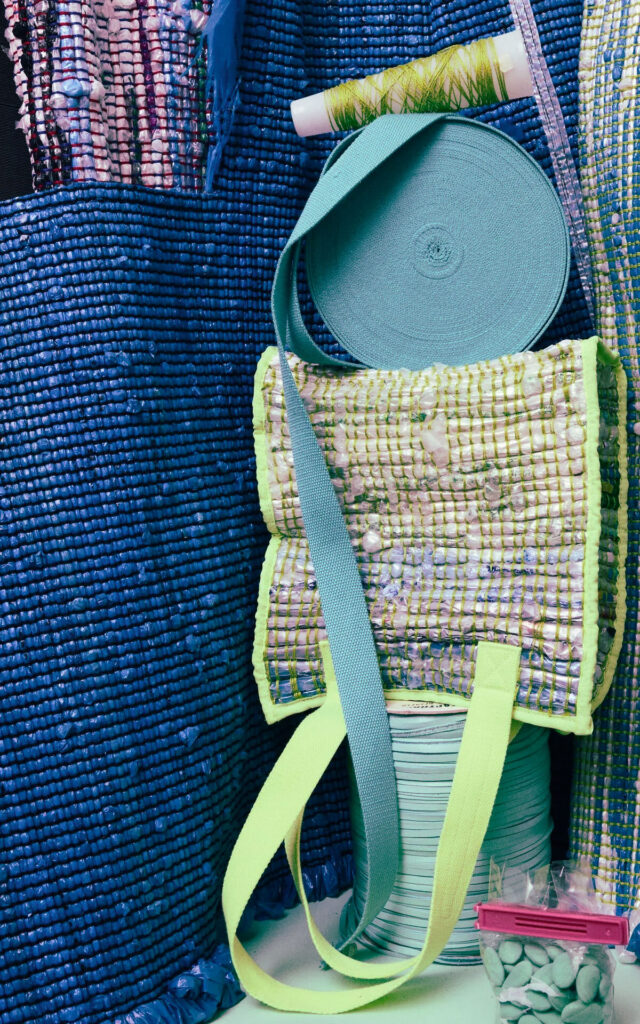
In the bull’s eye
AlphaTauri is an innovative fashion label founded in 2016. Based in Austria, and owned by the Red Bull company, it combines style and functionality using technologies in a sophisticated way.
It is named after the star Alpha Tauri, the brightest, most radiant, and most powerful star in the constellation Taurus, a tribute to its owner.
Through sustainable innovation, they are constantly exploring and researching to develop textile technologies.
The brand follows the principle of making durable products with timeless designs, always from the perspective of innovation and using high-quality technologies.
They have 3D WHOLEGARMENT® machines that produce 3D knitted designs, which allow them to reduce waste by producing in limited quantities.
In addition, to achieve high-quality leather products, they use the wet-green® tanning process: they obtain tannin from dried olive leaves which are 100% natural and biodegradable, ensuring a responsible and sustainable treatment.
As for materials of animal origin, they work with carefully selected partners who can certify the origin of the materials used in the designs.
For AlphaTauri, “truly conscious fashion means paying close attention to detail, whether in our process or in the way we design”.
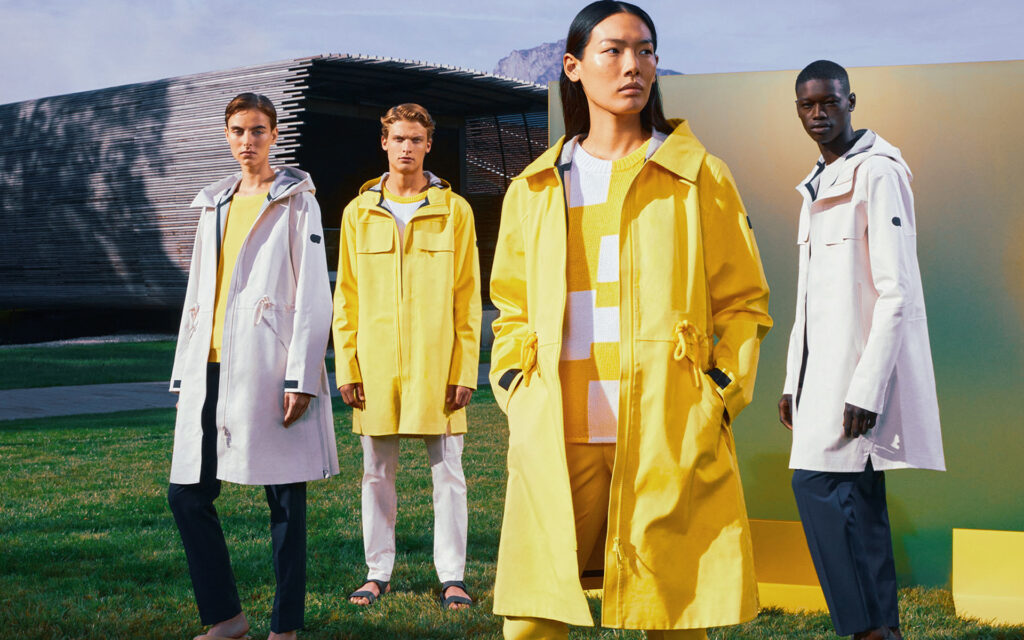
Waste to be treasured
BEEN London is a firm that instead of creating products and then solving the problems that arise, found an environmental and social problem, and created a solution for it.
Founder Genia Mineeva started out as a political journalist in the BBC newsroom until a story struck a chord: coffee cup waste.
Determined to act, she talked to local and international recycling plants, manufacturers of innovative materials, teachers, artisans, designers, and sustainability experts, concluding that the waste was not being put to good use.
After studying accessories design at the London College of Fashion, she launched the company’s first purse.
Based in Victoria Park, London, she combines traditional craftsmanship with innovation. She ensures that all her pieces are crafted with careful design and attention to detail.
The firm is constantly searching for recycled materials to make its accessories. Its collections have used everything from recycled leather, regenerated nylon, recycled cotton, vegan pineapple leather, recycled polyester, and vegan apple leather, to recycled felt.
At BEEN London, they choose to work only with materials that have a transparent supply chain and are certified by a trusted third party. Some examples are Global recycled standard, Peta-approved vegan, Standard 100 by oeko-tex®, Vegan trademark, Bluesign® product, Global organic textile standard, Recycled 100 claim standard.
They design products based on functionality and durability, turning materials that end up in landfills into timeless, classic designs.
Zero waste
With a zero-waste design approach, they use square and rectangular panels that generate hardly any waste.
In addition, they manufacture all their products locally to minimize their carbon footprint and provide transparency, employing people from their community at a fair wage.
It is very important for the firm to support local techniques that have stood the test of time.
They work closely with their workshop to offer free repairs for all their bags as well as design with end-of-life in mind, using stitching instead of glue, which allows them to easily recycle every part of the bag.
Since 2020, it supports the reforestation of the Amazon to contribute to carbon sequestration through the NGO Tree Nation. Thus, they plant a tree in the Peruvian Amazon for each BEEN London bag they sell.
“We make our bags to last, to be repairable, and to be recyclable. Just like you, we don’t want them to end up in a landfill.”
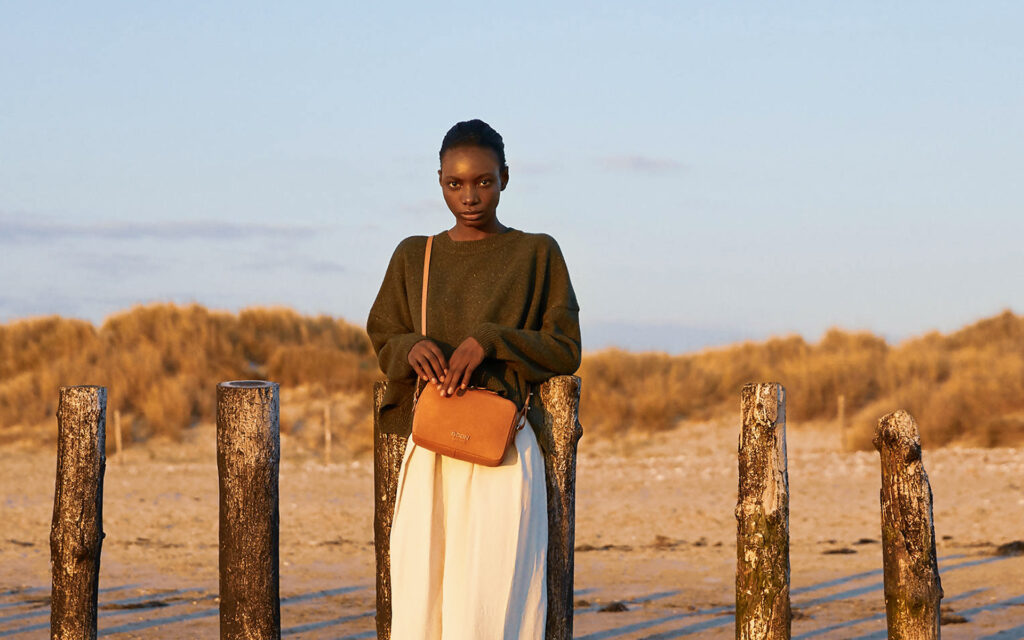
Shine responsibly
Designer Stella McCartney’s tenacity to find new sustainable and environmentally friendly materials for her collections led her to feature BioSequins, the first sequins created from innovative technology, on the cover of U.S. Vogue last April.
She collaborates with the startup Radiant Matter, a developer of a new generation of color and material solutions for the circular economy. This draws on the ingenuity of nature to design structural colors that glow naturally, helping the textile industry to drastically reduce its environmental impact.
A problem with a solution
Classified as microplastics, sequins are small, petroleum-based plastic discs. To achieve the shiny effect, they are given a synthetic coating or metal foil, which contributes to environmental pollution.
BioSequin is an alternative to plastic sequins. The creator firm strives to reduce microplastic pollution by keeping oceans and waterways clean.
Made from biodegradable, plant-based cellulose material, they use no synthetic pigments or dyes, so they are non-toxic and colorfast.
Their shimmering metallic sheen is free of metals and minerals, providing high-performance color effects in a sustainable and environmentally friendly way.
The mission of this innovative firm is to change the textile industry’s dependence on petroleum-based plastics, metals, and minerals as a material resource for color.
In addition to collaborating with the British designer, it has collaborated with the Italian women’s fashion brand Pinko and the accessories firm BEEN London.
For the moment, this innovation has not yet reached the market, although it could soon reach consumers through garments designed with BioSequins.
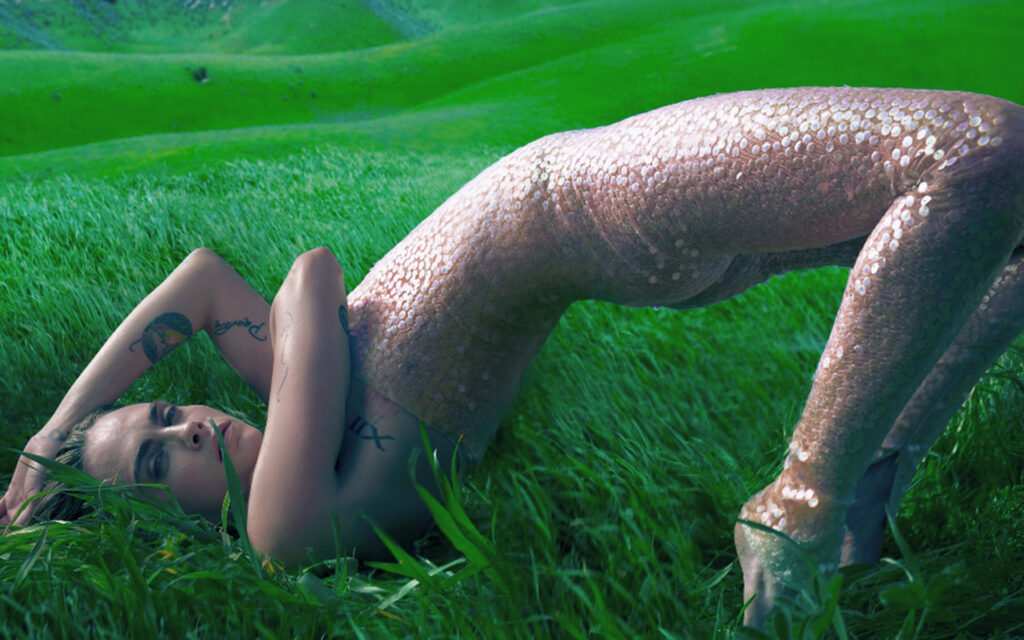
Sustainability is the future, and the future is now.


